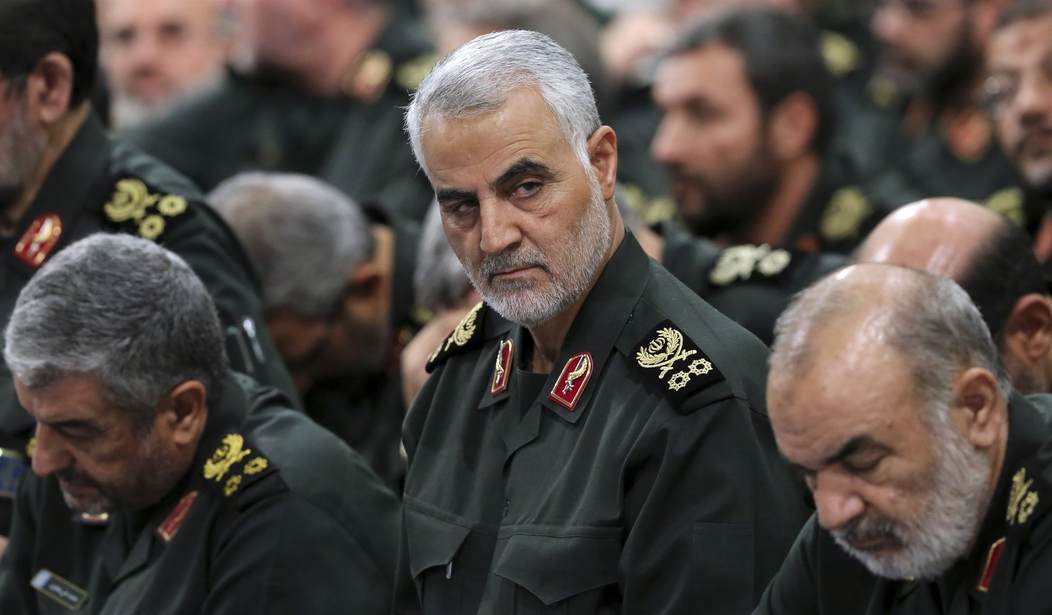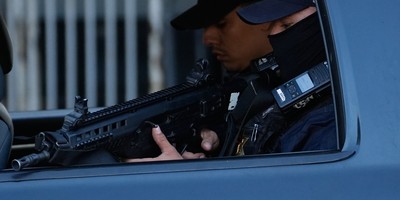"We caught him in the act," a senior White House official said about former Iranian terrorist leader Qassem Soleimani Friday morning.
On Thursday night, President Trump ordered a drone strike against Iranian Quds Force General Soleimani, who was traveling by car outside of the airport in Baghdad.
According to State Department and White House officials, this was a defensive action. Soleimani was actively planning imminent attacks against hundreds of Americans in Iraq, Syria and Lebanon. He was in Baghdad to encourage the Iranian militia members who attacked the U.S. Embassy on New Year's Eve.
According to senior officials who worked closely on the operation, the risk of keeping him alive far outweighed the risk of Iranian retaliation for his death. Soleimani and his leaders in Iran have continued to make threats against the U.S. They have carried out dozens of attacks over the past twelve months. President Trump was obligated to take action against him and other guests traveling in his vehicle.
"We can confirm that in the past several days, General Soleimani had been traveling in the Middle East coordinating further imminent large-scale attacks against U.S. diplomats and service members. These threats were highly credible and the intelligence is sound. General Soleimani’s travel also violated the ban imposed by the United Nations Security Council," the State Department released in a statement. "Recent orders given by General Soleimani dramatically escalated Iran’s campaign of violence and terrorism against Americans and American interests in the Middle East. He orchestrated a series of attacks against American forces in Iraq in the past several months, culminating in the rocket attack on December 27, 2019, which resulted in the death of an American citizen, wounded four American service members, and threatened the lives of many more American personnel. General Soleimani also ordered the assault on the American Embassy in Baghdad. General Soleimani continued to command Iranian supported proxies in Iraq, which posed an escalating threat to the lives of Americans."
Recommended
Abu Mahdi al-Muhandis, a dual Iraqi-Iranian citizen who orchestrated the U.S. Embassy attack in Baghdad and served as Soleimani's right-hand man, was also killed. Before the embassy attack and after U.S. airstrikes against Iranian militias last week, Muhandis threatened the U.S.
“The blood of the martyrs and the wounded will not go in vain, and the response will be harsh for the American forces in Iraq,” he said.
Muhandis was sentenced to death years ago for his role in the 1983 bombing attacks against the French and U.S. Embassies in Kuwait. Like Soleimani, he is responsible for the murder and maiming of thousands of U.S. troops. Between 2003 and 2011, he helped smuggled countless numbers of armor-piercing improvised explosive devices from Iran into Iraq. While working on behalf of Iran, Muhandis served as Iraq's deputy national security advisor and a member of parliament.
"I can’t talk too much about the nature of the threats, but the American people should know that President Trump’s decision to remove Qasem Soleimani from the battlefield saved American lives. There’s no doubt about that. He was actively plotting in the region to take actions – a big action, as he described it – that would have put dozens if not hundreds of American lives at risk," Secretary of State Mike Pompeo said during an interview with CNN Friday. "We know it was imminent. This was an intelligence-based assessment that drove our decision-making process. The American people also know the history of Qasem Soleimani – hundreds of American lives on his hands too. He was involved in the Beirut bombings. He had orchestrated an attack right here in Washington, D.C. It ultimately failed. This is a man who has put American lives at risk for an awfully long time, and last night was the time that we needed to strike to make sure that this imminent attack that he was working actively was disrupted."

























